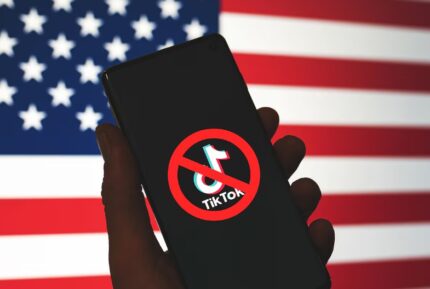On January 18, 2025, TikTok officially ceased operations for its 170 million American users, marking a significant turning point in the ongoing debate over data privacy and national security. This development follows the enactment of a federal law banning the platform unless its ownership changes, a decision upheld by the U.S. Supreme Court. The app, owned by Beijing-based ByteDance, has been removed from Apple and Google app stores in the U.S., leaving users unable to access its services.
The ban stems from allegations that TikTok poses a risk to national security due to potential influence by the Chinese government. ByteDance’s legal challenges to overturn the legislation proved unsuccessful, leading to the unprecedented shutdown of a major social media platform in the United States. Notifications sent to users read, “A law banning TikTok has been enacted in the U.S. Unfortunately, that means you can’t use TikTok for now,” emphasizing the abruptness of the app’s removal.
Shift to Alternative Platforms as Users Adapt
In the wake of TikTok’s ban, millions of users have flocked to alternative platforms to fill the void. Popular apps like Instagram Reels and YouTube Shorts have seen significant increases in user activity, while newer platforms such as Clapper and RedNote are rapidly gaining traction. RedNote, in particular, has emerged as the most downloaded free app on Apple’s App Store, amassing millions of new users by January 16, 2025.
This migration highlights the resilience and adaptability of American users who relied on TikTok not only for entertainment but also for economic opportunities and cultural expression. Content creators and businesses are now exploring these alternative platforms to maintain their online presence and audience engagement.
Political Ramifications and Trump’s Promised Reprieve
President-elect Donald Trump has pledged to address the TikTok ban shortly after his inauguration on Monday. Trump’s promise of a 90-day reprieve offers a glimmer of hope for TikTok’s potential return, albeit temporarily. The platform’s CEO, Shou Zi Chew, plans to attend the inauguration, signaling a possible avenue for negotiation and resolution.
The TikTok ban has become a flashpoint in U.S. domestic politics, underscoring tensions between data privacy, national security, and the digital economy. As the incoming administration navigates these challenges, the outcome of Trump’s intervention could have far-reaching implications for social media regulation and U.S.-China relations.
Potential Acquisition of TikTok’s U.S. Operations
Several prominent entities have expressed interest in acquiring TikTok’s U.S. operations, presenting a potential solution to the ban. Among the contenders is Perplexity AI, an artificial intelligence startup aiming to merge with TikTok’s U.S. business to strengthen its market position against competitors like Google.
Additionally, billionaire Frank McCourt and “Shark Tank” investor Kevin O’Leary have proposed a deal emphasizing enhanced user privacy and national security compliance. Elon Musk has also been floated as a potential buyer, with discussions including the integration of TikTok’s U.S. operations into his existing platform, X. These acquisition prospects reflect the high stakes and competitive interest surrounding TikTok’s future in the American market.
Broader Implications for U.S.-China Relations and Social Media
The removal of TikTok from the U.S. app stores marks an unprecedented move in the history of social media. This decision has heightened tensions between the United States and China, with significant implications for trade, technology, and diplomatic relations. For millions of American users, the shutdown has disrupted not only their digital routines but also their ability to connect, share, and thrive economically in the online space.
As the situation unfolds, the broader social media landscape continues to evolve. The rise of alternative platforms underscores the dynamic nature of the digital economy and the resilience of its participants. Whether TikTo’s U.S. operations will resume under new ownership or remain permanently banned remains to be seen, making this a pivotal moment in the ongoing saga of global technology governance.














